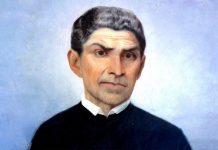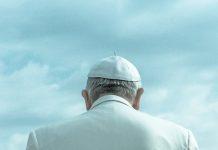Doctors from the Thomist Institute’s working group on infectious disease protocols for the sacraments and pastoral care suggest that going to church does not pose more risk than shopping for groceries

Newsdesk (August 26, 2020 6:40 pm Gaudium Press) Evidence shows that Church events and mass es are safe as long as public health guidelines are followed, doctors said last week. They do not pose a greater risk of spreading COVID-19 than other similar activities.
Based on evidence, three members of the Thomistic Institute Working Group on Infectious Disease Protocols for Sacraments & Pastoral Care have concluded that handwashing, social distancing and mask requirements have helped prevent the spread of coronavirus even when contagious and pre-symptomatic parishioners have participated in religious events.
Article on Real Clear Science
On Aug 19, Doctors Thomas McGovern, Deacon Timothy Flanigan, and Paul Cieslak authored an article for Real Clear Science on Mass attendance and COVID-19.
“For Catholic churches following [the] guidelines, no outbreaks of COVID-19 have been linked to church attendance, even though we have examples … of asymptomatic, unknowingly infected individuals attending mass and other parish functions,” they wrote. “Their attendance could have led to an outbreak if appropriate precautions were not followed, yet in each case, we found no evidence of viral transmission.”
“This encouraging news should inspire confidence that the guidelines in place – based on CDC recommendations – are working to decrease COVID-19 transmission,” the doctors continued. “While nothing during a pandemic is risk-free, these guidelines mean that Catholics (and public officials) may be confident that it’s reasonably safe to come to Church for Mass and the sacraments.”
They also affirmed that for the past 14 weeks, about 17,000 parishes have celebrated three or more Masses each weekend, as well as daily services, combining to equal over a million public Masses celebrated in the United States since shelter-in-place orders were eased.
The Authors suggest that by following public health guidelines, such Masses have largely avoided viral spread.
An important tip: Nick Schoen, an employee of the Archdiocese of Seattle, implemented a contact tracing protocol for mass participants in the area. By tracking people who participated in religious events shortly before they tested positive for COVID-19, he found that none of those people started outbreaks at churches.
Examples: infected people who attended mass but did not infect the attendees
Doctors Thomas McGovern, Deacon Timothy Flanigan, and Paul Cieslak cited at least four examples of infected individuals attending Mass while pre-symptomatic, as well as three anointings of sick parishioners by priests in poorly-ventilated rooms. In each case, they said, the sick individuals avoided infecting other people.
“During a July 3 funeral mass (45 attendees, capacity 885), two members of one household notified the parish that they had tested positive for COVID-19 and were infected and pre-symptomatic during the mass,” they said.
Furthermore, “during a July 11 wedding (200 attendees, capacity 908), fresh air circulated from multiple open windows with the aid of fans. The following day, an attendee developed symptoms of COVID and on July 13 tested positive. The attendee was almost certainly contagious with pre-symptomatic infection during the wedding.” but this did not cause any coronavirus contagion among the Mass-goers.
In April, the Thomist Institute Working Group on Infectious Disease Protocols for Sacraments and Pastoral Care published guidelines for reopening churches for Mass and other sacraments. These guidelines were incorporated by numerous dioceses into their own reopening protocols.
The few churches that have reported COVID-19 outbreaks did not follow such recommendations. These isolated incidents, have led local public health officials to restrict religious activities more than attendance to restaurants, movie theaters, and casinos. This has prompted often successful lawsuits for religious discrimination.
No greater risk than shopping for Groceries
“To date, evidence does not suggest that Church attendance – following the current guidelines – is any more risky than shopping for groceries. And the spiritual good for believers in coming to Church is immeasurably important for their well-being,” they said.
“Indeed, for Catholics, the Mass and above all the Eucharist are central to the Christian life. In a time like this, it is even more important that the faithful be able to come to Church and receive Holy Communion.” the doctors concluded.
With information from CNA
































